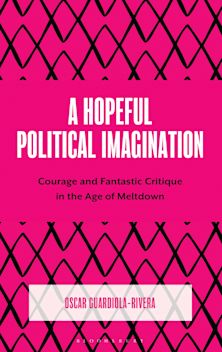- Home
- ACADEMIC
- Philosophy
- Social and Political Philosophy
- Gandhi's Thought and Liberal Democracy
Gandhi's Thought and Liberal Democracy
You must sign in to add this item to your wishlist. Please sign in or create an account
Description
With an intense focus on both the depth and practicality of Mahatma Gandhi’s political and religious thought this book reveals the valuable insights Gandhi offers to anyone concerned about the prospects of liberalism in the contemporary world. Gandhi’s Religious Thought and Liberal Democracy makes the case that for Gandhi, in stark contrast to commonly accepted liberal orthodoxy, religion is indispensable to the public life, and indeed the official activity, of any genuinely liberal society. Gandhi scholars, political theorists, and activist members of a lay audience alike will all find much to digest, comment upon, and be motivated by in this work.
Table of Contents
Chapter I: Overview of Gandhian thought
Chapter II: Gandhi’s thought and liberal democracy
Chapter III: Modern day freedom from Gandhi’s perspective
Chapter IV: Gandhi’s religious thought as compatible with and conducive to liberalism
Chapter V: On practical aspects
Chapter VI: Gandhi and liberal rights
Epilogue
Bibliography and Appendix
Product details
| Published | Mar 13 2019 |
|---|---|
| Format | Ebook (Epub & Mobi) |
| Edition | 1st |
| Extent | 134 |
| ISBN | 9781498586535 |
| Imprint | Lexington Books |
| Series | Studies in Comparative Philosophy and Religion |
| Publisher | Bloomsbury Publishing |
About the contributors
Reviews
-
This book intelligently and perceptively explores the subtleties of Gandhi’s account of the place and functions of religion in civil society, including the public sphere, and in the State. At a time when these matters are much disputed between liberals and conservatives, Gandhi’s philosophical approach to them, Sanjay Lal shows convincingly, has much to offer by way of its sanity.
Joseph Prabhu, California State University, Los Angeles
-
The broad audience will not be disappointed because Gandhi works are understood and described in a new a refreshing way and have real world applications those researching liberal democracies and for those living in liberal democracies. Lal challenges conventional wisdom while offering the reader a mature reading of Gandhi’s insights that are applicable to current problems of liberal democracies. It captures both the problems of liberal democracies and the maintains relevance of Gandhi for today, and for the future.
Terry Beitzel, James Madison University


































